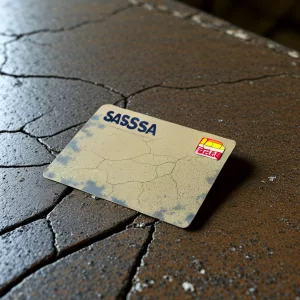The SASSA and Postbank Home Visit Program is a caring initiative in South Africa that brings help to people who can’t leave their homes due to illness. By visiting them directly, the program ensures that these vulnerable individuals receive their grants with dignity and respect. It’s designed to prevent misuse and only helps those who truly need it, with strict rules in place. This program not only provides financial support but also empowers beneficiaries, allowing them to choose someone they trust to assist with their grants. Through stories of people like Mrs. Nkosi and Mr. Dlamini, we see how this initiative changes lives, offering hope and restoring dignity for those in need.
The future of SASSA grants in South Africa is clouded with uncertainty, leaving many beneficiaries anxious about their payments. A recent court ruling has complicated things, pushing for permanent support for those in need, but this requires more money than the government currently has. Many people who rely on these grants, like the elderly and families with children, fear they may lose vital assistance. As crucial budget decisions loom, the wellbeing of millions hangs in the balance, creating a tense atmosphere for those who depend on this help.
The future of the April 2025 SASSA Older Person Grant is unclear, leaving over four million elderly South Africans anxious. Many are left waiting for information about their payments and any increases, with only a few weeks until the deadline. The card migration process has been slow and confusing, causing more worry among pensioners who depend on this support. As they brace for changes, the hope for clear communication and timely assistance remains strong, reminding us of the resilience of our elderly population during tough times.
South Africa’s Social Relief of Distress (SRD) grant system is crucial for helping those in need, but it has serious security problems. Investigators found weak protections that leave sensitive personal information vulnerable to cybercriminals. Issues like poor authentication and unsafe backup files could lead to identity theft and fraud. The government acknowledges these flaws and vows to take action, highlighting the urgent need for better security to protect citizens and restore trust in this important aid program.
South Africa is changing its welfare system by switching from gold cards to black cards, making it more secure and efficient. Beneficiaries need to make this switch by February 28, 2025, to keep receiving their grants without interruption. However, many people, especially those in rural areas, are worried about access to these new cards, as service points are mostly in cities. This change is not just about new cards; it’s about making sure everyone, no matter where they live, gets the support they need. As South Africa moves forward, it must ensure that no one is left behind in this important transition.
The R370 SASSA SRD Grant is a lifeline for many South Africans struggling with poverty and unemployment. This important financial aid helps those in need, but it faces challenges like strict eligibility rules and the need for online applications, which can leave some people behind. As the government plans to turn this grant into a Basic Income Grant by 2026, discussions about fairness and access are growing. It’s a crucial moment for South Africa, as the country seeks to support its most vulnerable while navigating tough economic realities.
In October 2024, South Africa’s elderly will see a small boost in their SASSA oldage grants, increasing by R10 to R2,190 for those aged 6074 and R2,210 for those 75 and older. While every little bit helps, this increase doesn’t fully ease the burden of rising costs for essentials like food and healthcare. With around four million elderly recipients relying on these grants, it raises important questions about whether the support is enough. Despite the challenges, there’s hope for change as communities and advocates push for better assistance for those in need.
In October 2024, SASSA grants will see small increases for the Older Persons Grant, Disability, War Veterans, and Childcare Dependency Grants, while Child Support and Foster Care grants will stay the same. Many people are worried, as these unchanged grants struggle to keep up with rising costs of living. The slight increases might help a little, but they are not enough for families facing tough times. Personal stories, like that of Thandi raising her grandchildren and John, a war veteran, show the real struggle behind these numbers, highlighting the urgent need for more support.
Over 150,000 Children’s Grants have been suspended by the South African Social Security Agency (SASSA), leaving many families struggling to provide for their children’s education and other needs. Reports conflict over the cause of the suspension, with SASSA blaming incorrect banking details provided by grant applicants. The crisis has raised questions about the agency’s transparency and dedication to helping vulnerable citizens, highlighting the need for systemic accountability in South Africa’s social security system.
As the year comes to an end, the South African Social Security Agency (SASSA) closes out another year of serving the public. However, the festive season also brings an increased risk of social welfare scams aimed at vulnerable beneficiaries. These scams can involve wrongfully claiming or using SASSA benefits, denying rightful access to social grants, or offering loans against social welfare funds. It’s important to be vigilant and report any fraudulent conduct to SASSA’s National Helpline or email address to ensure the integrity of social assistance programs.










